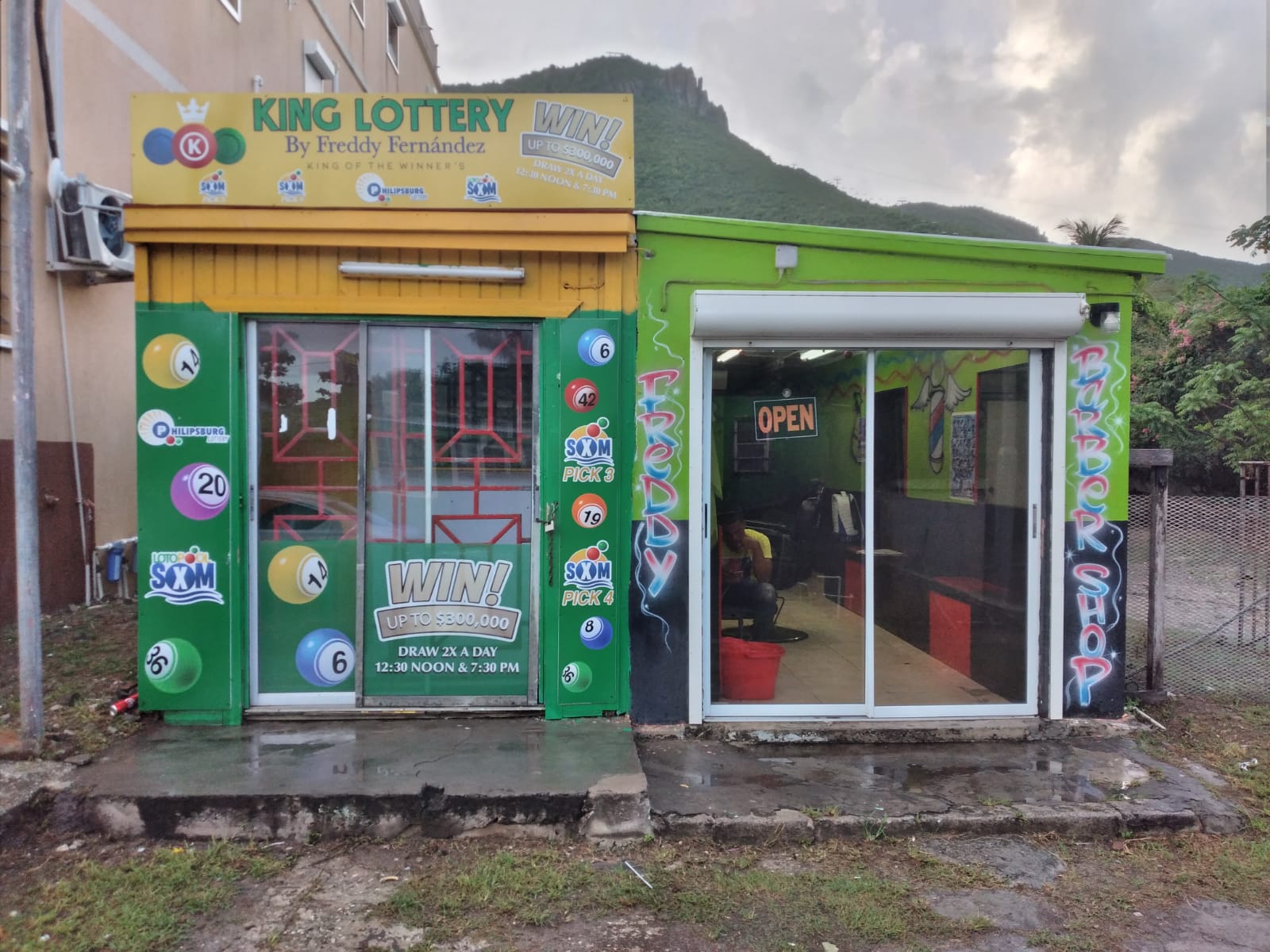Lottery booths: how the government facilitates gambling addiction

PHILIPSBURG — The Social Economic Council (SER) sent its advice about the placement of lottery booths in low income areas to Prime Minister Silveria Jacobs on February 14. It is hampered by a lack of data. The advice does not establish the number of lottery booths on the island before Hurricanes Irma and Maria in 2017 compared to the present. It also does not give any insights in the impact of lottery booths on low income areas.
Party for Progress leader Melissa Gumbs asked Jacobs on October 29, 2020, to request an advice from the SER. Jacobs waited more than sixteen months, until May 6, 2022, before sending the request to the SER. The advice she received in February is based on data that were available until the first quarter of 2021.
The advice makes only a fleeting reference to a 2017 study by the Canadian Gambling Research Exchange. That is a pity, because the website of this Ontario-based organization contains a treasure trove of information about the negative effects of gambling.
In August 2019, the British journal The Lancet wrote that, based on data from England, problem gamblers are more likely to commit or attempt to commit suicide. Swedish data suggest a 15-time increase in mortality among problem gamblers and Australia research has linked 2 percent of suicides to gambling.
The Lancet mentions another phenomenon that ought to set off alarm bells in St. Maarten: European operators of gambling corporations are seeking new markets in low income or developing countries. Sub-Saharan Africa, with over half of its nations considered to be among the poorest in the world, has been described as the next big market for gambling.
No wonder that MP Gumbs sought advice about the effect of the presence of lottery booths on the population of low-income areas.
The SER-advice gives a fair indication of the government’s level of disinterest in the fate of gambling addicts. The SER could for instance not find any viable data about gambling addiction in St. Maarten since 1995 – that is almost thirty years ago.
The government is obliged to provide adequate care for people suffering from mental illness – and gambling addiction is considered by many as a mental illness. This obligation is based on the UN International Covenant on Economic, Cultural and Social Rights of 1966 and on the first paragraph of article 21 of St. Maarten’s own constitution.
That article reads as follows: “The government takes measures to promote public health.”
The SER-advice established that there is no specialized care available for the treatment of gambling addiction, while there is a severe increase of citizens asking for mental health care. That there are only a few psychiatrists on the island is not helpful either in this respect.
The advice mentions that there are 360 lottery venues on the island; 22.5 registered vending locations and 6.9 lottery booths per square mile. However, these numbers could very well be just the tip of the proverbial iceberg because license holders do not inform the Department of Economy, Transportation and Telecommunication about new locations. “The number of lottery booths could be much higher,” the SER observes.
License holders are having a field day anyway: there is no limit on the number of points of sale for each license holder and there is no legislation in place that obliges them to actively prevent or reduce gambling addiction. The Ministry of Tourism, Economic Affairs, Transport and Telecommunication facilitates the availability of lottery booths because it issues licenses “indefinitely,” the SER-advice states.
So what does the SER advise? Limit the number of points of sale and resellers per license holder and amend the lottery ordinance in such a way that those license holders can be requested to fund programs that combat gambling addiction. Gambling tax revenue ought to go towards programs that combat gambling addiction as well and they should fund programs that increase the level of care for gambling addicts.
Other ideas are a ban on the sale of lottery tickets to vulnerable people and gambling addicts and a ban on placing lottery booths within a 100 meter-radius of schools, hospitals, clinics, churches, banks and rehab centers. The SER also advises to limit the number of lottery booths in low income areas. Lastly, the government ought to create a legal basis for including addiction care provided by the Mental Health Foundation and the Turning Point Foundation in insurance packages. Currently, insurances do not cover these treatments.
###
Related articles:
Opinion piece: Addiction
Lottery booths target low-income areas
Opinion piece: Why you should avoid lotteries
March is Gambling Awareness Month — TURNING POINT FOUNDATION
Banks kick lottery companies out
De-risking strategy targets casinos and lottery companies
Court denies Smartplay right to text message lottery






















